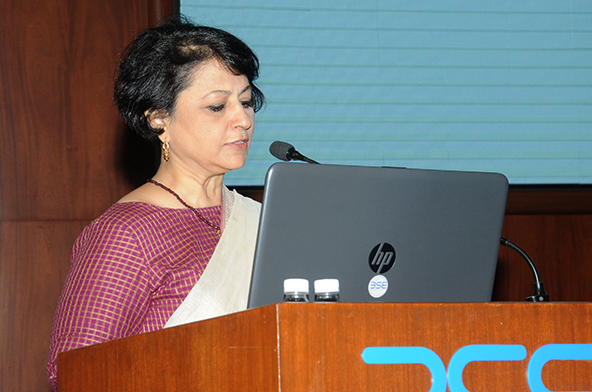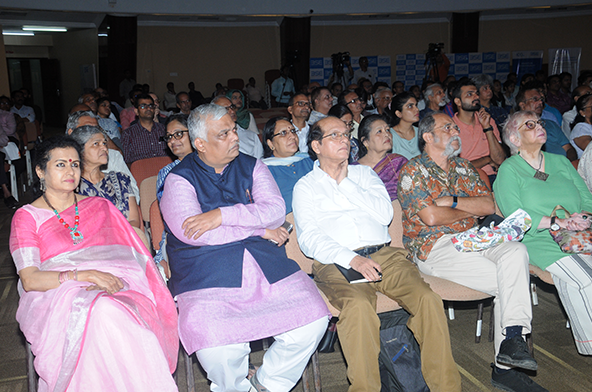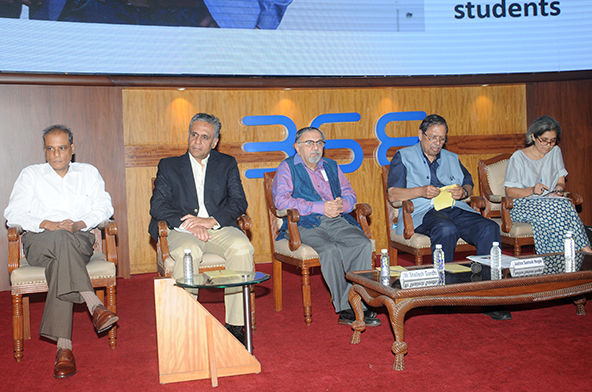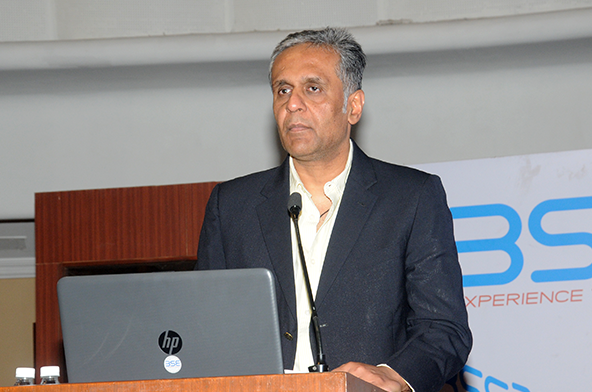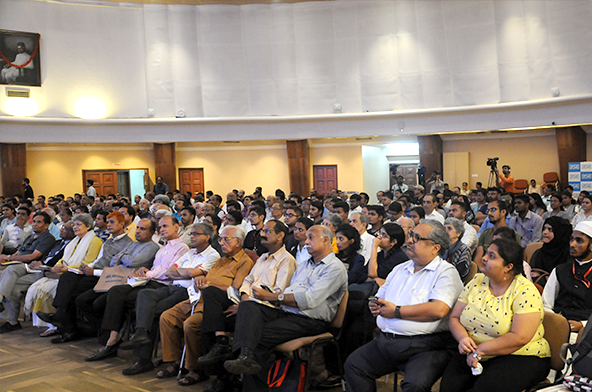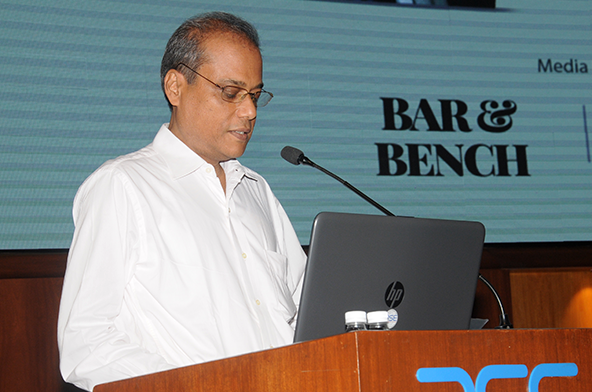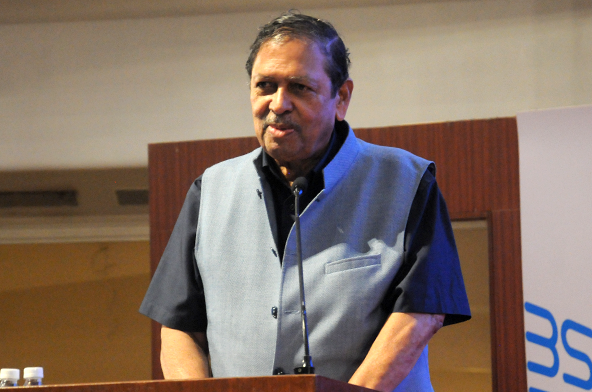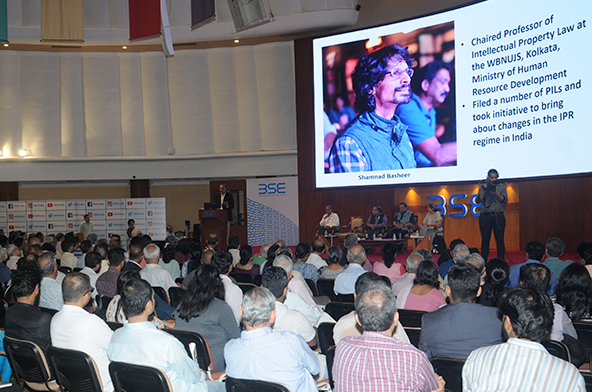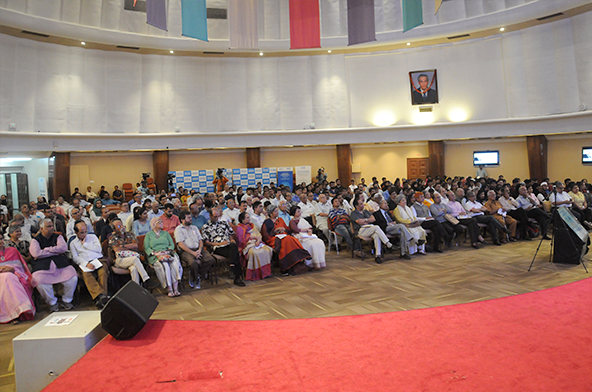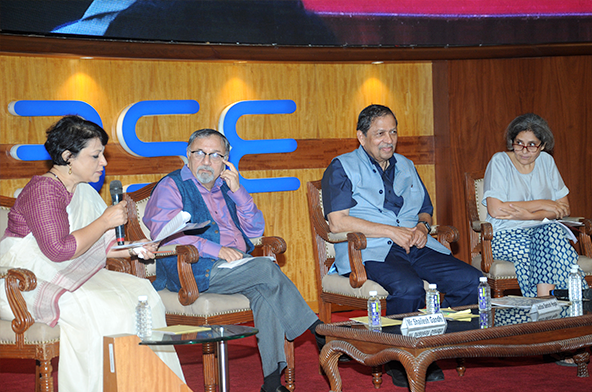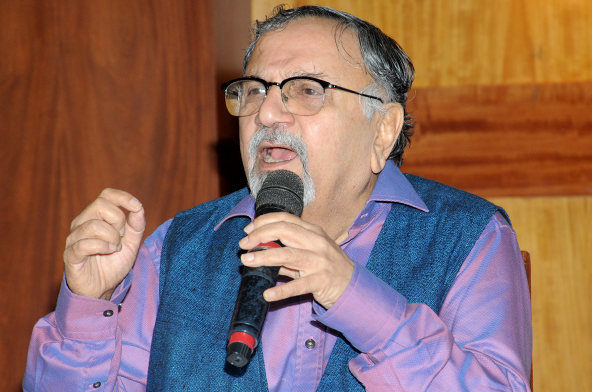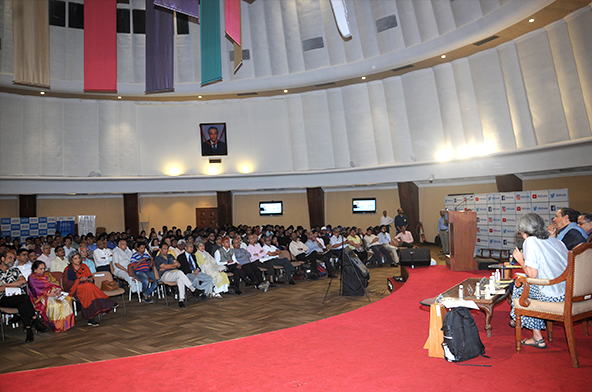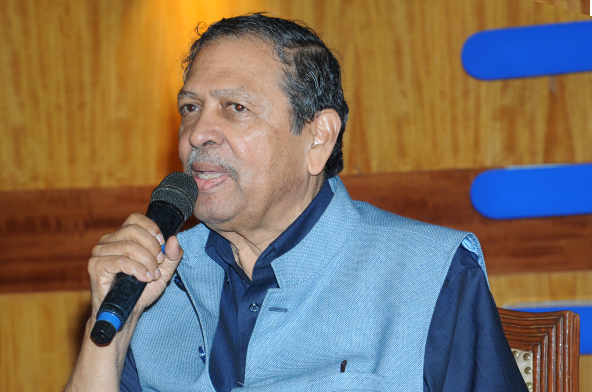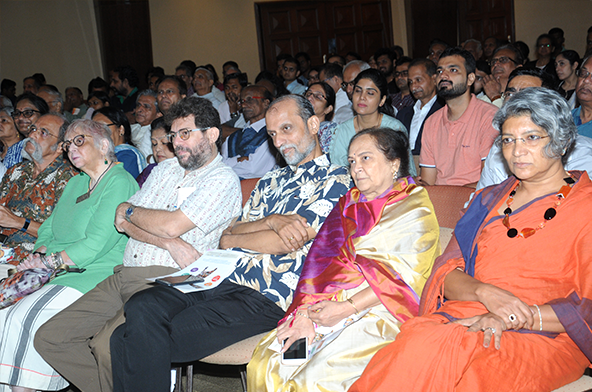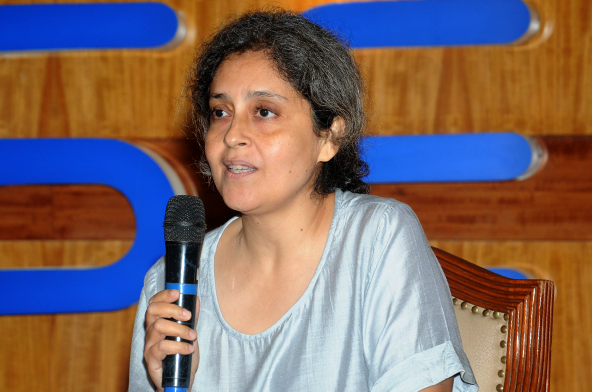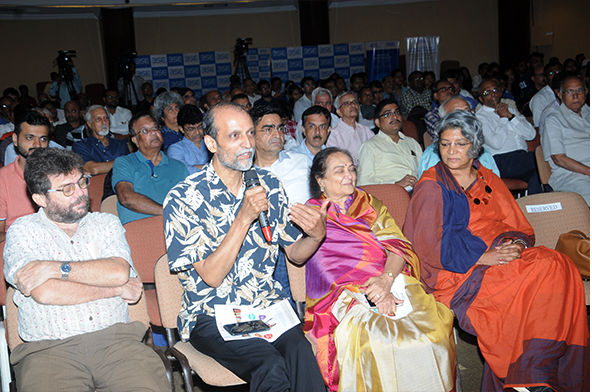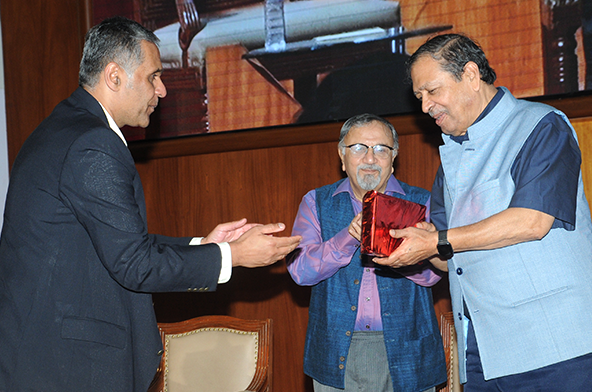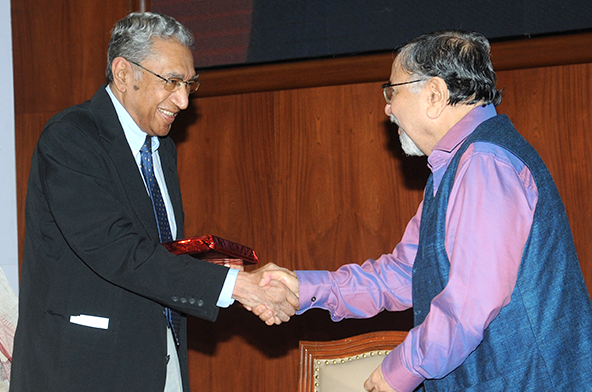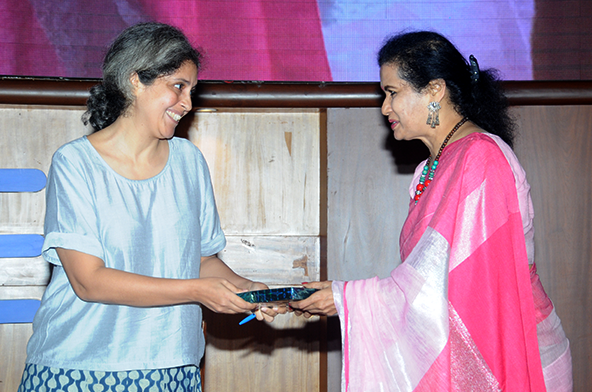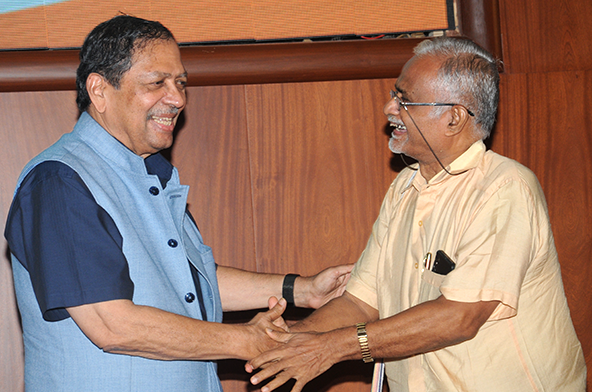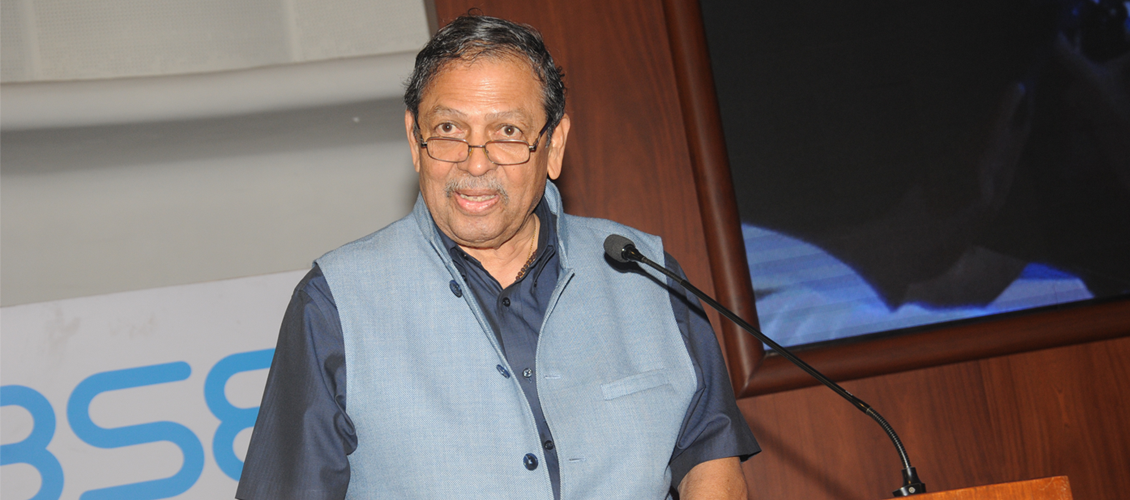
"Governance cannot be all process and values. It must ensure that the citizens, especially the poorest, have the basic needs and have a life with dignity. A dictatorship that delivers basic needs to the citizens is no doubt better than a dictatorship that does not, but it is not good governance. Similarly, regular elections alone do not translate into 'good governance'. Rule of law that is transparent, but unjust is certainly not 'good governance'. It is only when all these three conditions are fulfilled that governance becomes 'good governance'," says Justice (retd) N Santosh Hegde. He was speaking at the 2nd Annual RTI Lecture organised by Moneylife Foundation's RTI Centre at Mumbai.
According to Justice Hegde, good governance can be provided by public servants only if they realise that "they are not masters of the people, but they are only servants of the people and that they owe a duty to the people". For this, he says, they will have to follow certain principles of 'Raj Dharma'. The ingredients of 'Raj Dharma' is enumerated in a report prepared by Lord Nolan from UK, which is known as 'standards in public life", and include selflessness, integrity, objectivity, accountability, openness, honesty and leadership.
The talk was attended by several prominent personalities from all fields and included concerned citizens, leading RTI activists from Mumbai and Pune and college students. It was held at the Bombay Stock Exchange convention centre on Saturday.
Governance, Bureaucracy and Political Masters
Over the years, Justice Hegde says, political dominance in the guise of representing people's will has overshadowed the importance of bureaucracy. This dominance is not resisted by many in the bureaucracy and on the contrary many willingly or meekly submitted to this dominance because of which good governance has suffered, he says.
In their own areas political executives and bureaucrats have to work independently, the former Lokayukta of Karnataka says. "But political executive by their presumed popularity has acquired excessive dominance by misusing the transaction of business rules. If these rules were to be used only for the object for which they were incorporated in the Constitution, then the bureaucrats would have been the true administrators and would have been instrumental in providing good administration which is in my opinion equal to any fundamental rights of the citizens of India in the Constitution of India. The idea that constitutional framers did not intend Articles 77 and 166 to be used for political dominance in governance, is clear from the fact that no qualification was fixed for Members of the Legislature and Cabinet," he added.
Has Democracy Lost Its True Meaning?
"When democracy defines governance is of the people, one has to see the effect of corruption on governance, one has to go to public offices and try to seek an interview with a public servant and experience whether it is possible to get even an interview with a public servant at any hierarchy without pocketful of money to bribe or political backing to get the work done. If one makes an audit of the time spent by the bureaucrats of every level of their work, I am sure that the said report will show that most of the time the bureaucrats are not in their designated places, but are in so-called meetings with the political bosses. India, which boasts of largest democracy in the world which is supposed to be ruled by the Government of the people, seems to have lost the true meaning of the word 'democracy'," says Justice Hegde, who also served as Solicitor General of India during 1998 to 1999.
He says, "Over the years, for the reasons well-known the legislature and bureaucracy seems to have merged into one group like the conjoined twins, one supported by the other. If our Constitutional organ, like the executive, is independent and honest, there could be no political corruption and vice-versa. If there is corruption, then it is because of the collective greed of the elected representatives and bureaucracy."
Corruption in Administration
According to Justice Hegde, when we speak about corruption and maladministration, there is no question of degree or percentage of corruption in administration. Instead, he says, it is about the lack of probity, which is the foundation of good governance.
"One of the commonest method by which the bureaucrat could be made subservient or even corrupt is by way of 'transfer'. Today, Government servants are used to 'cushy' postings which one gifts of political bosses. Transferring officials is not and should not be the prerogative of political bosses. It is the most potent weapon by which you can control the honest bureaucrat or reward dishonest one. I strongly believe that the power of transfer should be vested with the bureaucracy itself and politicians should not have any role to play in it."
In 2007, Justice Hegde had written to the II Administrative Reforms Commission about the evils of transfer in the hands of political bosses. "But nothing seems to have happened except reproducing my letter in one of its report," he added.
Good Governance is Our Fundamental Right
Justice Hegde says he does not believe when cynics say in a democracy people get the government they deserve. May be in life many events happen over which we may not have any control, he says, adding, "In a democracy many changes can be achieved if people fight for it collectively. According to me, good governance is our fundamental right. Collective voice for this will have its own effect. Everyone should raise their voice about it. If that happens, one day in future I am sure good governance will be the rule of the day. No doubt, an eternal vigilance is the price one has to pay in democracy and that eternal vigilance should be collective one."
Justice Hedge's Lecture was be followed by a panel discussion with Shailesh Gandhi, former central information commissioner and Prof Reetika Khera, one of India's leading Development Economists and Social Scientists from IIM-Ahmedabad.
Mr Gandhi raised the issue of long delays and high cost of litigation, which he feels will help common people to get much needed help from the judiciary when both the legislature and the executive fails.
Responding to this, Justice Hegde says, "Justice is a subjective matter. Also almost as much as 50% cases are speculative litigations in our country. Don't give opportunity to affordable litigants to use the speculative justice system. We need to stop litigations at second level to deliver better & efficient justice."
Participating in the discussion, Prof Khera explained how technology is actually not helping in bringing transparency and eradicating leakage and corruption but simply invading our privacy and leaving us dangerously vulnerable to the state. She shared several examples of corruption shifting to other mode. She said with Aadhar, the public distribution system (PDS) shopkeeper tells the ration holder that her thumb authentication failed when it may be shown as complete transaction and the food grains would be siphoned.
Senior journalist Sucheta Dalal, who is also founder-trustee of Moneylife Foundation, wanted to know about roles played by legislature and bureaucracy as well as public anger in bringing good governance. She says, "Over the years, for the reasons well-known the Legislature and Bureaucracy seems to have merged into one group like the conjoined twins, one supported by the other. In the run up to 2014, we saw burning public anger against this. But now, we seem to have subsided into subservience. What is the way forward?"
Responding to this, Justice Hegde says, "The civil society need to come together and make citizens aware their responsibility while voting to elect right candidates. None of the above (NOTA) is one of the most powerful tool but people have not understood it's importance. NOTA should be used to give stern message to political parties about their choice of candidates."


